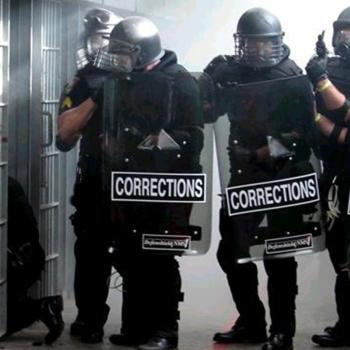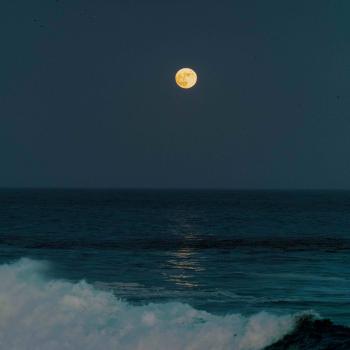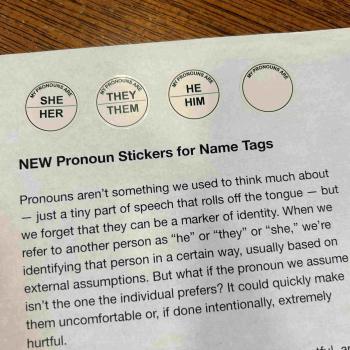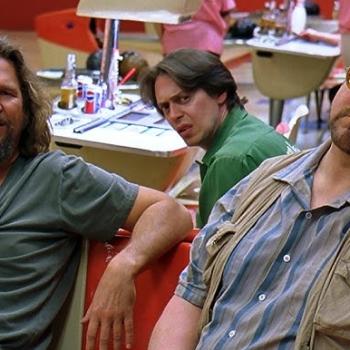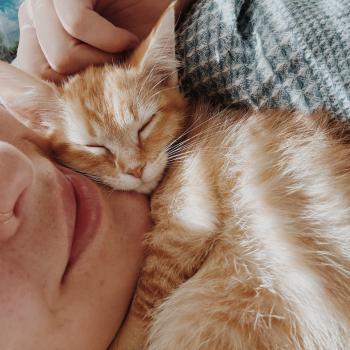I could very well be Glennon Doyle’s biggest fangirl, and I just finished re-reading her memoir “Untamed.”
Something in my spirit nudged me to go to the nearest bookstore and get my hands on another copy, as I’d passed along my original as soon as I turned the final page.
It had just been too empowering and life-changing not to share posthaste.
I’m so glad I listened to that which Doyle calls her inner “Knowing,” because once again feasting my eyes on these stories (which are, per the introduction, about “how [she] got caged—and how [she] got free”) was exactly what I needed these last couple of weeks.
This time, however, I used a yellow #2 pencil as a bookmark and slipped it out from the book’s binding whenever a particular line stopped me in my literary tracks.
I soon realized that I was underlining something (or many things) on every single page, and the fresh paper became diluted with graphite asterisks and slanting lines beneath sentences. There’s just so much to love.
So—although my initial plan was to compile the quotes into a single blog post, I knew it’d be as tedious to type and read as an entire manuscript.
Therefore, I thought I’d stick with the theme of “Patheos” and list only the underlined portions that directly dealt with faith.
As a Christian-mommy-blogger-turned-queer-spiritual-activist, Doyle has a lot to say about the subject.
So please enjoy this curated list of quotes, and afterward, I’d love to hear which quotes stood out to you.
(Side note: The quotes are listed in the order in which they appear in the book.)
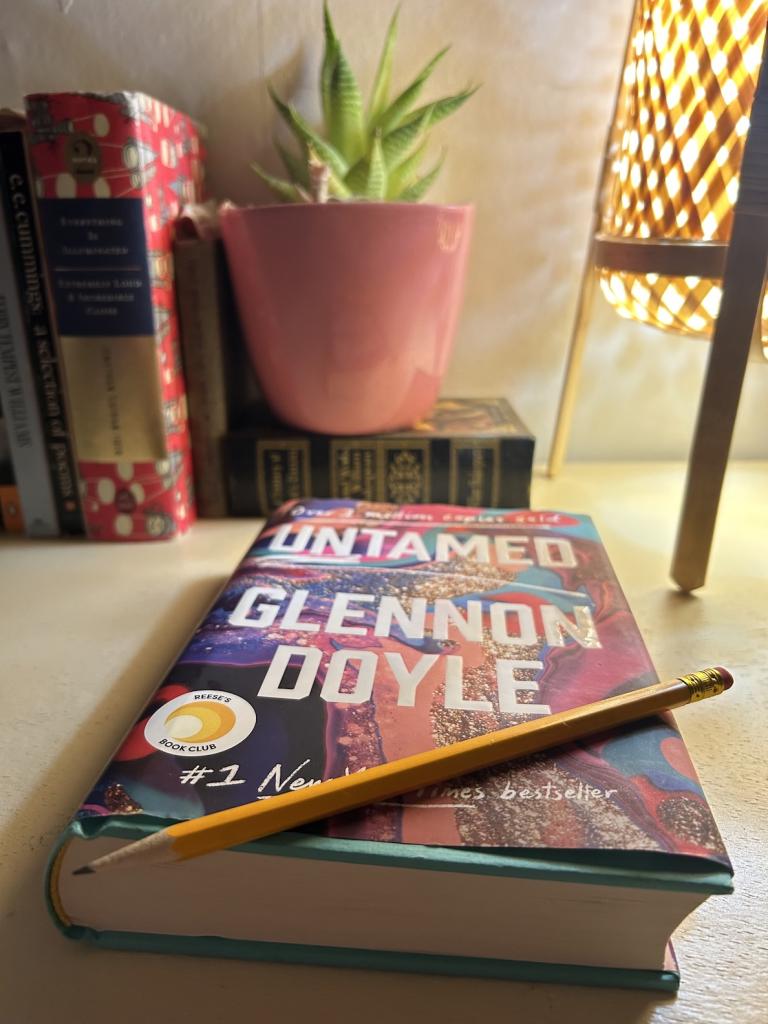
On falling in love with Abby Wambach at first sight:
For a long while I thought that what happened that day was some kind of fairy-tale magic. I thought the words There She Is came to me from on high. Now I know that There She Is came from within.
On crucifixion and resurrection:
…every great spiritual teacher tells us the same story about humanity and pain: Don’t avoid it. You need it to evolve, to become. And you are here to become.
Like Buddha, who had to leave his life of comfort to experience all kinds of human suffering before finding enlightenment.
Like Moses, who wandered forty years in the desert before seeing the promised land.
Like Wesley from The Princess Bride, who said, “Life is pain, Highness. Anyone who says differently is selling something.”
Like Jesus, who walked straight toward his own crucifixion.
First the pain, then the waiting, then the rising. All of our suffering comes when we try to get to our resurrection without allowing ourselves to be crucified first.
On finding God in a dark, quiet closet:
When I talk like this, my wife raises her eyebrow and asks ‘Aren’t you just talking to yourself down there?’ Maybe. If what I’ve found in the deep is just my self—if who I have learned to trust is not God but myself—and if, for the rest of my life, no matter how lost I get, I know exactly where and how to find myself again—well, then. That is certainly enough of a miracle for me.
On being still and knowing:
HOW TO KNOW:
Moment of uncertainty arises.
Breathe, turn inward, sink.
Feel around for the Knowing.
Do the next thing it nudges you toward.
Let it stand. (Don’t explain.)
Repeat forever.(For the rest of your life: Continue to shorten the gap between the Knowing and the doing.)
On knowing “who we were meant to be before the world told us who to be”:
We are all bilingual. We speak the language of indoctrination, but our native tongue is the language of imagination.
On as it is in heaven:
Let’s conjure up, from the depths of our souls:
The truest, most beautiful lives we can imagine.
The truest, most beautiful families we can fathom.
The truest, most beautiful world we can hope for.
Let’s put it all on paper.Let’s look at what we’ve written and decide that these are not pipe dreams; these are marching orders. These are the blueprints for our lives, our families, and the world.
May the invisible order become visible.
May our dreams become our plans.
On deconstruction:
I have lost identities, beliefs, and relationships it has hurt to lose. I have learned that when I live from my emotions, knowing, and imagination, I am always losing. What I lose is always what is no longer true enough so that I can take full hold of what is.
On what faith is (and what it’s not):
To me, faith is not public allegiance to a set of outer beliefs, but a private surrender to the inner Knowing.
… For me, living in faith means allowing to burn all that separates me from the Knowing so that one day I can say: I and the Mother are one.
On being brave:
Brave does not mean being afraid and doing it anyway.
Brave means living from the inside out. Brave means, in every uncertain moment, turning inward, feeling for the Knowing, and speaking it out loud.
On women being good:
The blueprints of heaven are etched in the deep desires of women.
On the Garden of Eden:
Maybe Eve was never meant to be our warning. Maybe she was meant to be our model.
Own your wanting.
Eat the apple.
Let it burn.
On motherhood:
When we call martyrdom love we teach our children that when love begins, life ends. …
What if love is not the process of disappearing for the beloved but emerging for the beloved? …
What if the call of motherhood is not to be a martyr but to be a model?
On the word found 74 times in the Hebrew Bible:
Selah is the holy silence when a recipient of transformational words, music, and sketchily acquired information from radiology receptionists pauses long enough to be changed forever.
Selah is the nothingness just before the big bang of a woman exploding into a new universe.
On Bob Marley and Frederick Buechner:
If I could do it again, I’d toss out the sign I once hung on Tish’s nursery wall that read “Every Little Thing Is Gonna Be Alright.” I’d replace it with Buechner’s “Here is the world. Beautiful and terrible things will happen. Don’t be afraid.”
On grace:
The miracle of grace is that you can give what you have never gotten.
On the origins of religion:
There are wild, mysterious forces inside and between human beings that we have never been able to understand. Forces like faith. Like love. like sexuality. We are uncomfortable with our inability to comprehend or control these mysteries.
So we took wild faith—the mysterious undefinable evershifting flow between humans and the divine—and we packaged it into religion.
On her atheist wife:
You think I’m wrong to believe there’s a God. But it’s what you love and need me for. You borrow my faith like we borrow our neighbor’s Wi-FI.
On the preacher’s sermon:
“Why—if your church is based on the Jesus who spoke incessantly about orphans and widow, demilitarization, immigrants, the sick, the outcast, and the poor—are you choosing abortion and gayness to hang your hat upon?”
On being wary of pastors:
The thing that gets me thinking and questioning most deeply is a leader who warns me not to think or question.
On the big and little C church:
When hate or division is being spread in our religious institutions, we have three choices.
1. Remain quiet, which means we agree.
2. Loudly challenge power, and work like hell to make change.
3. Take our families and leave.
On the BS that is the “evangelical position”:
We all believe our religious beliefs were written on our hearts and in the stars. We never stop to consider that most of the memos we live by were actually written by highly motivated men.
On why she’s still Christian-ish:
I remain compelled by the Jesus story. Not as history meant to reveal what happened long ago, but as poetry meant to illuminate a revolutionary idea powerful enough to heal and free humanity now.
On giving me goddamn goosebumps:
Let’s dare to imagine that God is less like the powerful men who run the world. Let’s imagine God is actually like the person those rulers just killed. Let’s imagine that God is a vulnerable baby, born to a poor single mother, among the group most despised by the religious and political elite. They pointed to him. God is in him, they said.
On the Gospel according to Glennon:
The Jesus idea is that justice casts the widest net possible to that every last one of us is inside. Then there are no others—there is only Us. Inside one net we are free from our cages of fear and hate and, instead, bound to one another. The revolutionary idea that every last one of us is both held and free: That is our salvation.
On girl gods:
I think it’s ridiculous to think of God as anything that could possibly be gendered. But as long as the expression of God as female is unimaginable to many while the expression of God as male feels perfectly acceptable—and as long as women continue to be undervalued and abused and controlled here on Earth—I’ll keep using it.
On hating the sin but loving the sinner:
We know that love has no buts. If you want to change me, you do not love me. If you feel warm toward me but also believe I’m going to burn in hell, you do not love me. If you wish me well but vote against my family being protected by the law, you do not love me.
On “the God conflict”:
For a while I felt scared because I thought the God conflict in me was challenging God. Now I know it was the God in me, challenging religion.
On making necessary distinctions:
Often the internal voice telling us who God is and what God approves of is not God; it’s our indoctrination. …
Some of the hardest and most important work of our lives is learning to separate the voices of teachers from wisdom, propaganda from truth, fear from love and in this case: the voices of God’s self-appointed representatives from the voice of God Herself.
On choosing what you know instead of what people taught you to believe:
If those who claim to speak for God or Truth can convince you to believe instead of Know, to live from their rules instead of your roots, to trust the voices of middlemen instead of the still, small voice inside you—then they control you. If they can get you to mistrust yourself—to stop feeling, deny knowing, quit imagining—and instead rely only on them, then they can get you to act against your own soul. If that happens, they can get you to follow them, vote with them, condemn for them, even kill for them—all in the name of this God who is constantly whispering to you: That is not exactly it.
On our life’s calling:
We all want purpose and connection.
Tell me what breaks your heart, and I’ll point you toward both.
On your new favorite nursery rhyme:
“Jesus loves me, this I know, for he gave me Lexapro.”



